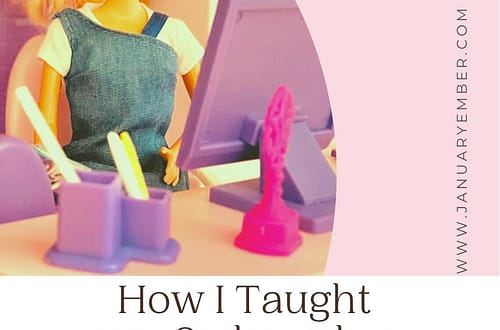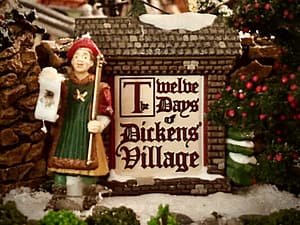
Let’s break it down to the Basics of Bookkeeping
The CPA Boss in me had to start somewhere, so here she goes! I am going to kick off the "BOSS - Business" segment of the blog with a break down on the Basics of Bookkeeping.
By day, I am CPA/CFF, CFE, Forensic Accountant financial advisor, I find myself constantly frustrated and often pulling my beautiful long red hair out due to a constant lack of proper (or none at all) bookkeeping!
Basically I can look at someone's financial statements and 98% of the time I can point out at least 5 items to investigate.
Yeah, I'm that good! That's why they pay me the big bucks! So, listen up!

We all want to make more money, be our own boss and save as much as possible, and live the lives we dream of. Many people have the courage to do it…
Let’s say, today (or yesterday), you, the courage induced entrepreneur, decide you want to follow your dream and start your own business. Great!
So how do you start? Where do you start?
I’m going to skip the start-up basics and get right to the most important thing to understand – THE MONEY!
It is all starts with the money! You can make money all day, but if you don’t know how to properly track your income and your spending, a successful business may not be what you get.
For 25 years I have watched people start a small business, and neglect the first fundamental concept of finance and budgeting – recording and tracking! In business, we call this “bookkeeping”.
As a Forensic Accountant with a unique keen eye for details, I deal a lot with business fraud.
As an investigator, there is nothing more satisfying than catching the perp, finding the money, and stopping the fraud. But as a person, it breaks my heart.
Preventing fraud is easier than finding it.
I’d like to help you save time, money, and protection, in your personal lives and business by educating you on the importance keeping track of your money. Whether it be you, your small business, your big business.
A fundamental understanding of bookkeeping and financial information is essential for everyone, of every age, always!
Disclosure: I will do my best to simplify accounting concepts, but understand, not all bookkeeping and accounting concepts are "simple" to everyone.
My goal is to attempt to simplify some basic fundamentals of accounting education in my way. Every teacher has their own style!
Let me start by also saying this is not an accounting course, a replacement for proper education, or anything of the like. This is just me sharing, hoping I can illuminate the importance of business matters that seem to get brushed under the rug a lot of the time.
I will be launching some training courses and business toolkits very soon, so stay tuned and subscribe for updates on when those will be coming out.
Financial education is the most important thing in business, in my opinion, it is the key to success!

Let's talk about the basics of bookkeeping.
What is Bookkeeping (you already know, ok skip ahead smarty pants)? Don't know, keep reading.
What is bookkeeping? Think of your checkbook register, your bank account, your credit card year end summary statement. All of these items are “personal accounts”, that would be found in your “personal books”.
Bookkeeping, often used synonymously with accounting, is the process of reporting transactions that occur in a business (for you, all the transactions of your life).
Bookkeeping is the recording and reporting of business transactions. In short, tell me where the money came from and where the money went.
The most basic way to think about bookkeeping is to imagine your own bank account: your paycheck (income) goes in, you pay your bills (expenses), money goes out, whatever is left is savings (net income).
How do you keep Books?
“Books”, as they are often called, are where all of your business transactions are recorded and stored. Back in the old days, these were on giant green ledger sheets!
Thanks to glorious technology, bookkeeping is the easiest its ever been! There are tons of bookkeeping software options available now! There is no need to go mad over this task!
Use bookkeeping software like QuickBooks to easily manage your "books"!
The very first time I was exposed to bookkeeping I used QuickBooks to set up books and records for the company I worked for where none had ever existed before.
Funny, that is the very thing that set me on the path to becoming a CPA (I was on path to be the first woman President…went slightly off track)!

Where do you start once you get your bookkeeping software?
QuickBooks is the bookkeeping software I most commonly recommend to business owners. Due to its ease of use I find most clients can navigate their way through it pretty well.
Once you get your QuickBooks bookkeeping software, regardless of the edition type you choose, you’ll have to go through the initial setup.
The first Stage for proper bookkeeping in the setup is creating the Chart of Accounts. QuickBooks is great in this regard as well. Depending on the type of business you select, QuickBooks will populate a generic Chart of Accounts for you.

What is the Chart of Accounts?
The Chart of Accounts are all the “buckets” you need to have set up to record all transactions from:
- Bank accounts
- Loan accounts
- Credit Card accounts
- Income and expense accounts
After you go through the setup process, and have your accounts set, you can either:
- Go to Banking in QuickBooks to link with your financial institutions (most big banks and credit cards available)
- or, manually enter any historical records you need to get you up to date
- If you are starting from scratch, you won’t have anything old to enter
I highly recommend taking a QuickBooks learning course to anyone running a business, especially if you have never had an accounting or bookkeeping course of any kind.
Perform bank and credit card Reconciliations! This is the most important step that small business owners neglect!
One of my professors once said, if Cash is correct you can feel pretty good about your bookkeeping!
Every month, get your bank statements and perform a bank reconciliation on bank accounts, credit card accounts, and loan accounts.
QuickBooks has a very easy to use feature for performing bank reconciliations. If there is a discrepancy, QuickBooks will try to help you find the error at that time and fix it.
The takeaway: My Top 3 most basic & important Bookkeeping Tips
For any and every business, Implement these 3 BASIC & IMPORTANT bookkeeping Actions:
- Use bookkeeping software
- QuickBooks is great for start-ups, small and mid-size businesses.
- Enter all current period transactions,
- set up automated downloading of transactions (eliminate data entry)
- Perform Bank and Credit Card Reconciliations monthly
In the day and age of technology we live in, there is really no excuse for anyone to be doing manual bookkeeping data entry anymore.
My advice is to get with the times, automate, and track everything your business is doing.
Likewise, you should track your personal finances as well!
If you are a small business owner, you can track your personal activity within your QuickBooks by setting it up as a separate company, or even using “classes” (more detailed than the scope of this post).
If you only need to track personal finances, I recommend using Quicken, as it is designed for personal use.
Tracking your personal finances helps if you are a small business owner; often our personal funds and credit are used to fund our new business - that is what we call "Capital", or "Officer's loans".

There are so many wonderful tools available to automate the day to day bookkeeping and accounting functions that are necessary to maintain and grow any successful business.
You will hear me repeat this a million times, there is nothing more important than financial reporting! The world revolves around it. The stock market is driven by it!
All of that data, is simply bookkeeping at its basics...rolled up into financial statements which are ultimately used to determine stock prices.
Well guys, I promised I would talk about business too, so there you have it! Bookkeeping broken down to the 3 basic and most important things I feel every business should be doing and many are not! Every day I speak to business owners and so many do not do these 3 basic and necessary bookkeeping functions.
It surprises me at times, but then I realized, maybe people just really don’t understand how important all this really is…maybe I can try to help. We all have our own special gifts and talents and methods of getting through to some where others have failed.
Here is my version, my attempt, to impart my wisdom in the hopes it may help someone who may not know how necessary these things are and how much easier it will be to grow their business if they start doing this immediately!
DO these 3 bookkeeping tasks immediately to improve your life and grow your business!
FORWARD THINKING: Coming next
In the coming episodes I’ll be talking about some questions a lot of people ask me, and don’t seem to really know much about:
- Financial planning
- Retirement options
- for individuals and
- small businesses
- Finding Inexpensive ways to do Expensive things
- Best Places to put your money for investments
- small investments
- big investments
- When to start saving for retirement? – Yesterday!
Question or comment? I'd love to hear from you! Drop me a line and Subscribe for updates!
Save & share!
Until next time…
Keep smiling, improve every day, and build a life you love!
Yours Truly,
January Ember


You May Also Like








